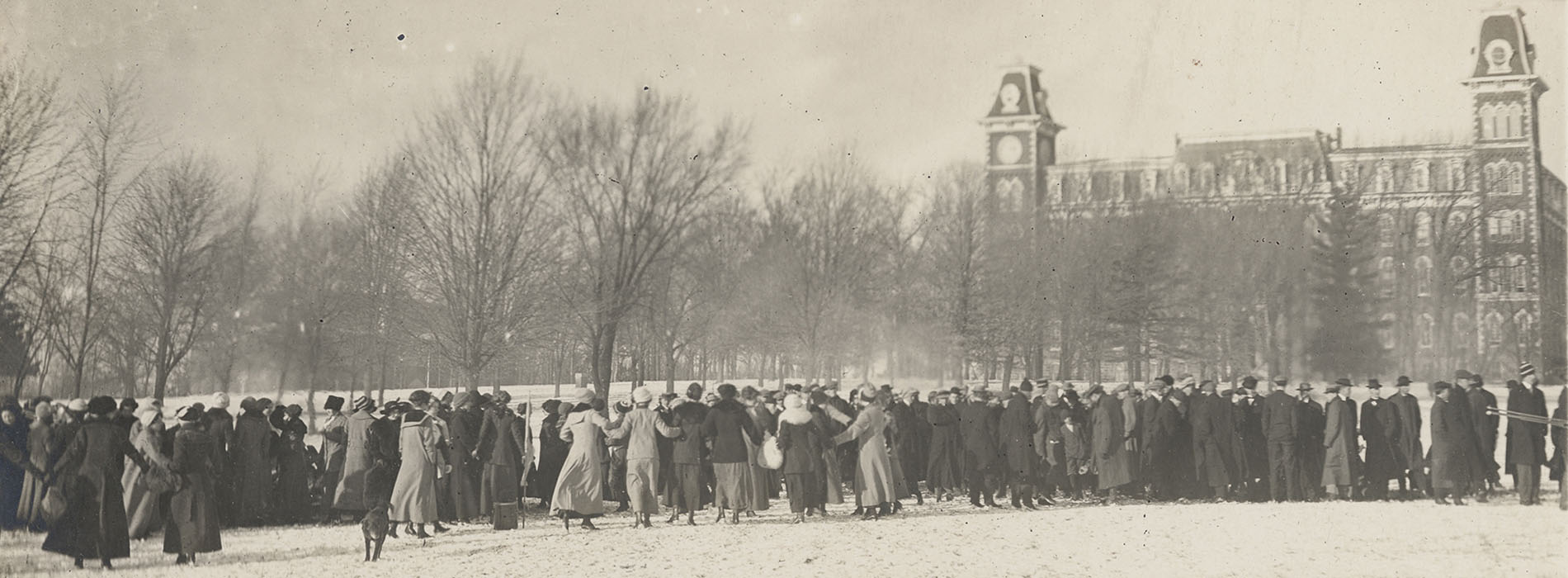
An Early Student Protest – In 1912, students protested after 36 classmates were expelled for publishing an underground newspaper that described problems at the university. The expelled students were reinstated a few days later.
The University of Arkansas supports an open exchange of ideas and has hosted a wide variety of visiting speakers on campus through the decades including former presidents Bill Clinton and George H.W. Bush, speakers and authors Helen Prejean, Malcom Gladwell, Gloria Steinem, Elie Wiesel and Salman Rushdie, and other prominent figures such Condoleezza Rice, Martin Luther King III and the Dalai Lama.
As a public university, the U of A has long welcomed a diversity of perspectives and viewpoints of faculty, staff and students as well as campus guests – even when those views may not align with the university’s core values. Freedom of speech and expression allow a diversity of views to be heard and considered, especially when they are controversial, shocking or unpopular. Speeches, demonstrations and protests provide opportunities for us to embrace our mission of teaching and learning as we continue to work to build a better world.
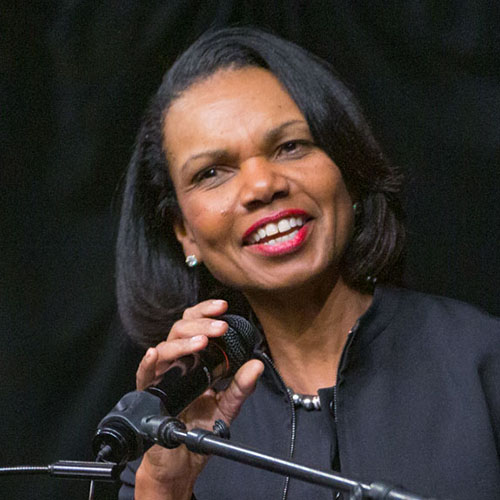
Condoleezza Rice – The U.S. secretary of state under President George W. Bush spoke as a part of the student-funded Distinguished Lecture Series on campus in 2014.
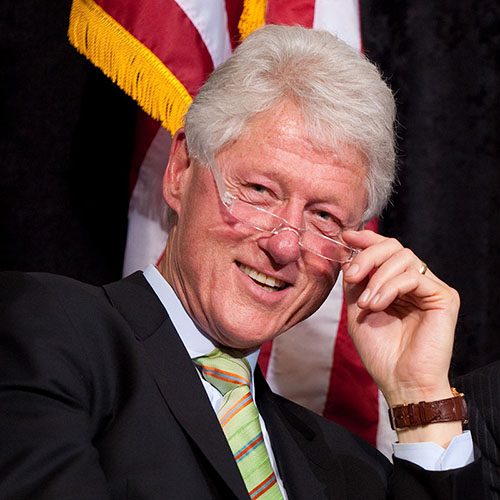
Bill Clinton – An Arkansas native and former U of A law professor, the 42nd president of the United States has visited campus many times including as the inaugural speaker of the Dale and Betty Bumpers Distinguished Lecture Program in 2012.
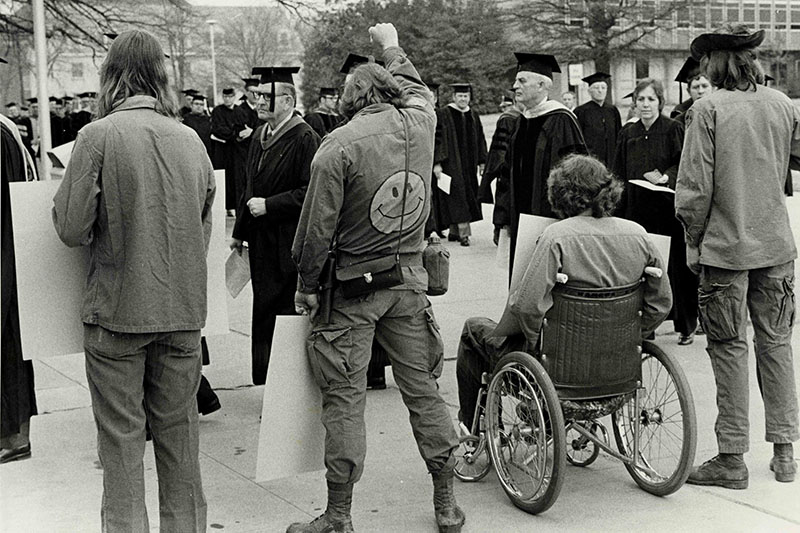
Veterans Protest - Veterans studying at the university demonstrated against the continuance of the war in Vietnam and the presence of Dean Rusk, a former secretary of state who had supported U.S. involvement in Vietnam, who spoke at commencement in 1972.
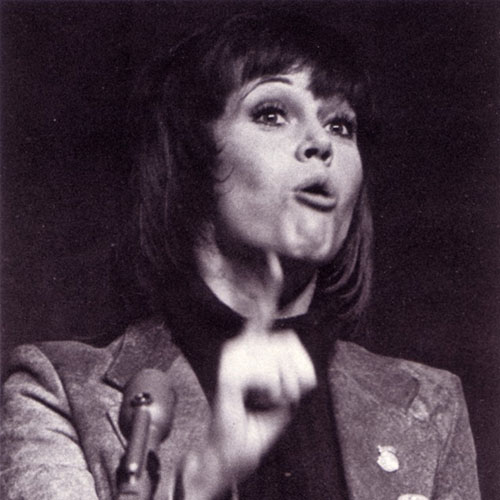
Jane Fonda – The actress drew both protests and plaudits when she spoke at the U of A in 1970 because of her anti-war activism and leadership in the Veterans Against the Vietnam War organization.
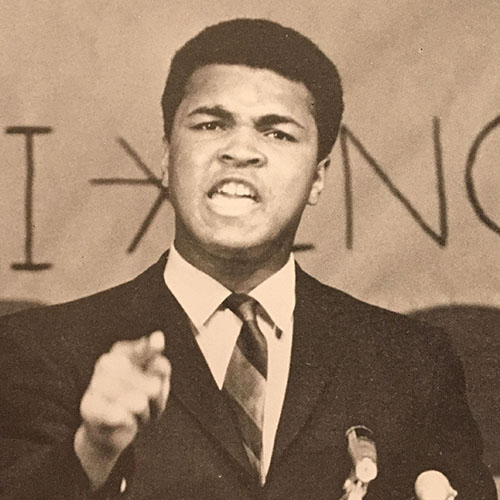
Muhammad Ali – When the boxer refused military service as a conscientious objector during the Vietnam War, he became a polarizing figure. Speaking at the U of A in 1969, Ali still found students divided in their thinking about him.
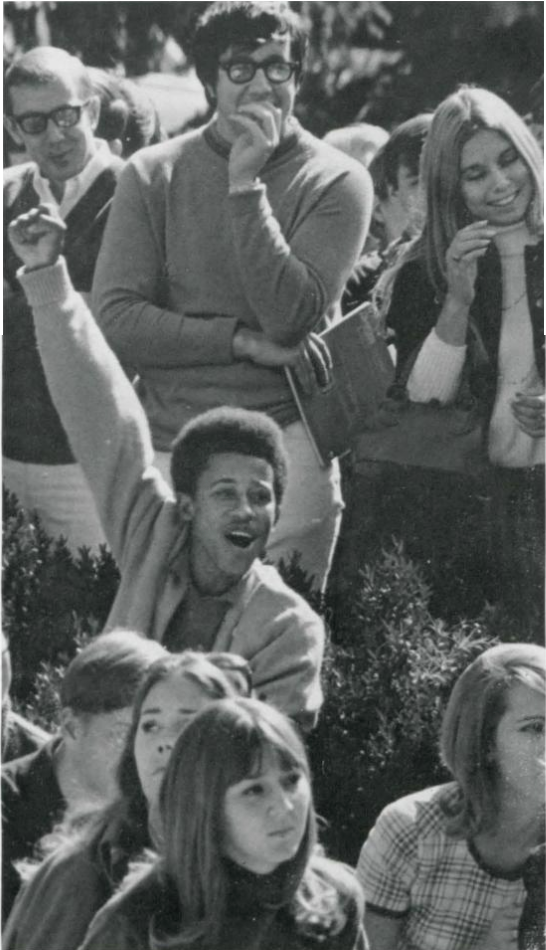
Freedom of Expression – R.D. Rucker, a student at the U of A, reacts during a protest at the Chi Omega Greek Theatre calling for a moratorium on war in 1970.
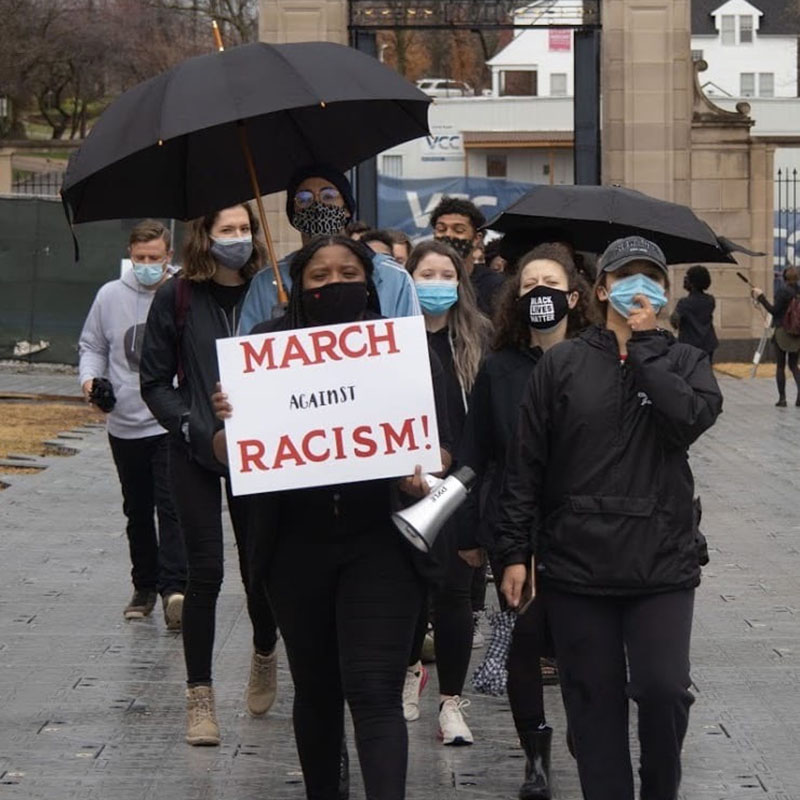
March Against Racism – In spring 2021, students marched from the Pat Walker Health Center, passing the statue of J. William Fulbright and finishing at the courtyard of Gearhart Hall for a rally denouncing racism.
Photo courtesy: Eli Stokes/Hill Magazine

Laverne Cox – The Emmy Award-winning actress, documentary film producer and civil rights advocate kicked off the Distinguished Lecture Series in 2018.
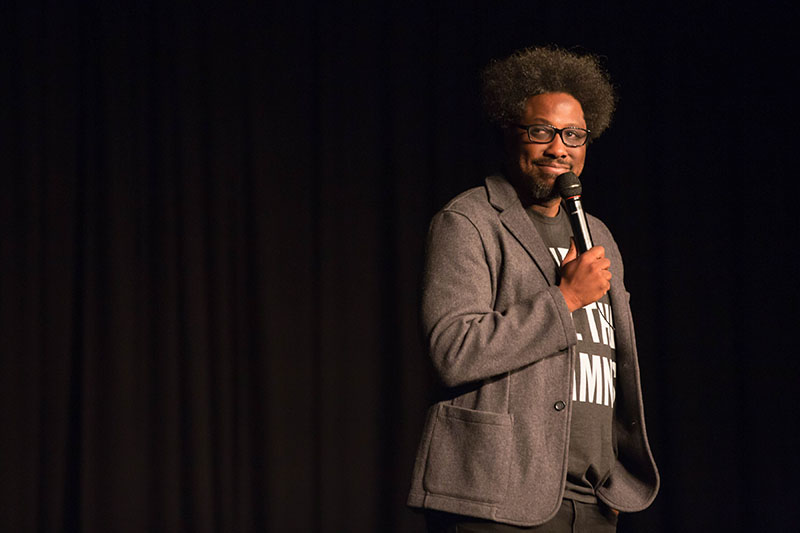
W. Kamau Bell – Comedian, satirist and host of CNN's United Shades of America shared his commentary on race, politics and issues in modern American society with the U of A community in 2017.
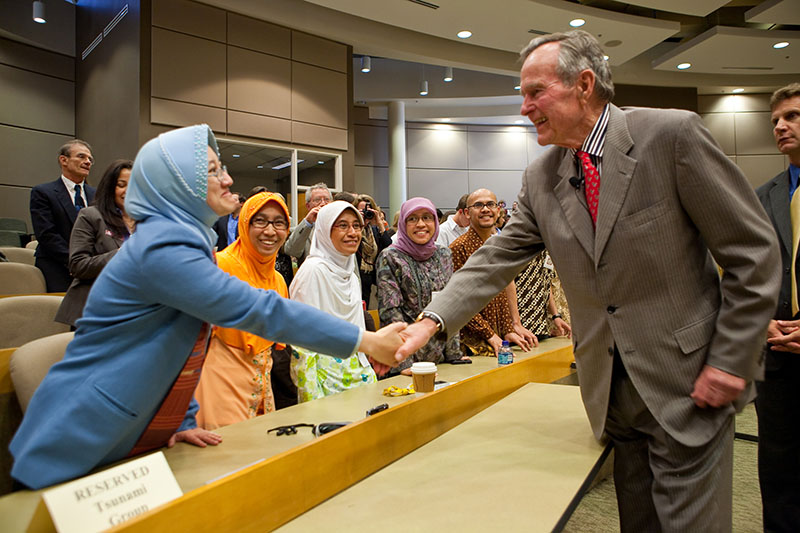
George H.W. Bush – The 41st president of the United States from 1989 to 1993, who also served as vice president from 1981 to 1989 under President Ronald Reagan, spoke as a part the university’s Distinguished Lecture Series in 2009.
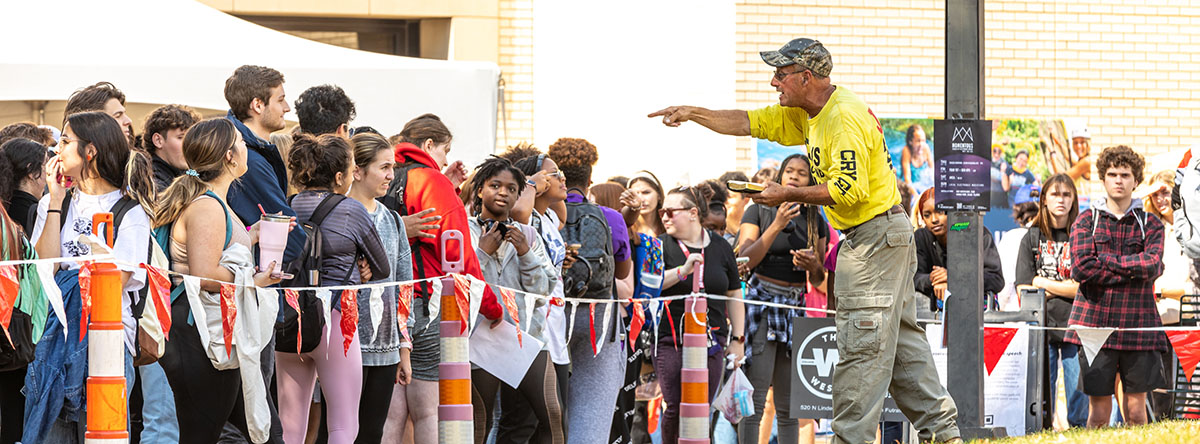
Lone Speaker – An individual shared thoughts and personal opinions with those who stopped to listen at the Union Mall in 2022.
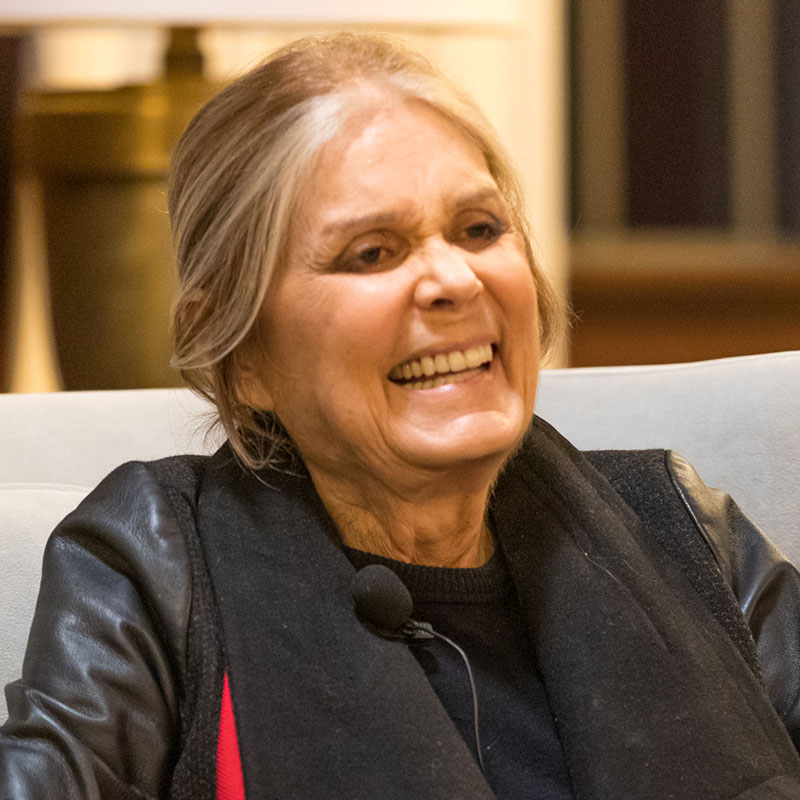
Gloria Steinem – The American journalist, author, political activist, advocate for social equality and feminist spoke on campus in 2021.
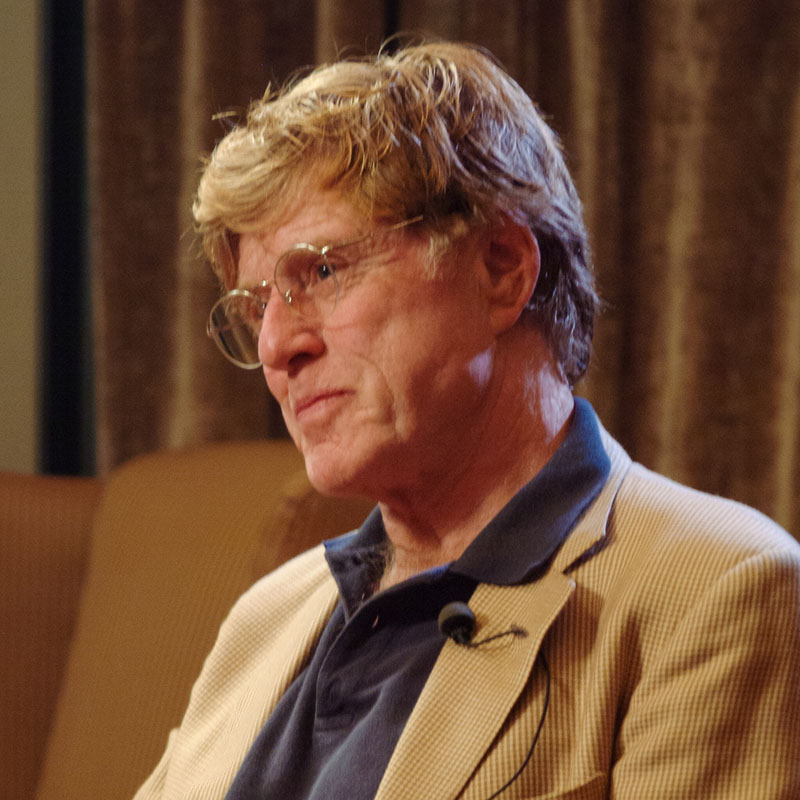
Robert Redford – The actor, director and environmentalist spoke on campus in 2005 as a part of the university’s Distinguished Lecture Series.
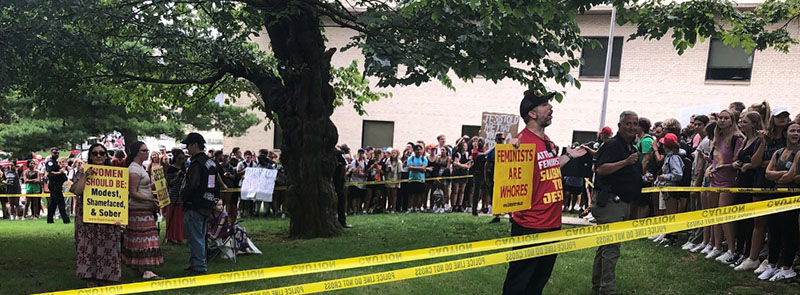
Protestors on Campus – A group of out-of-state protestors voiced their religious views on campus in 2022.
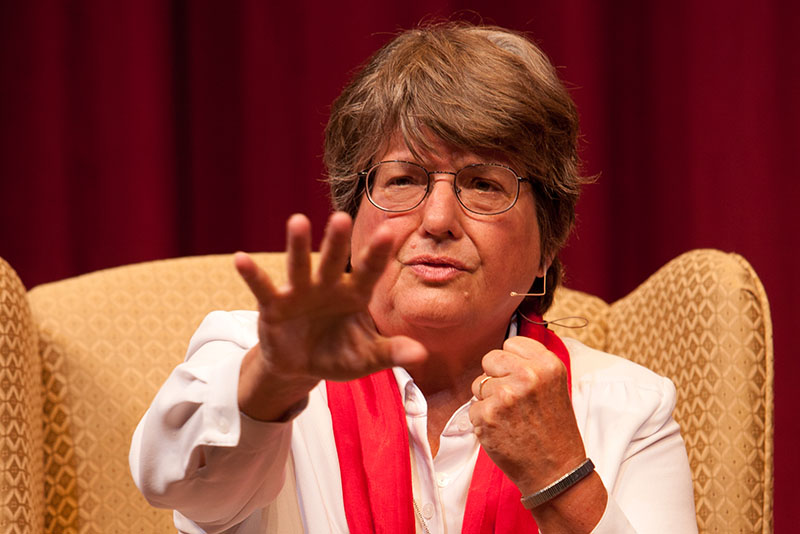
Sister Helen Prejean – An advocate for abolition of the death penalty, Prejean visited campus in 2011 and 2012. She is the author of Dead Man Walking: An Eyewitness Account of the Death Penalty in the United States.
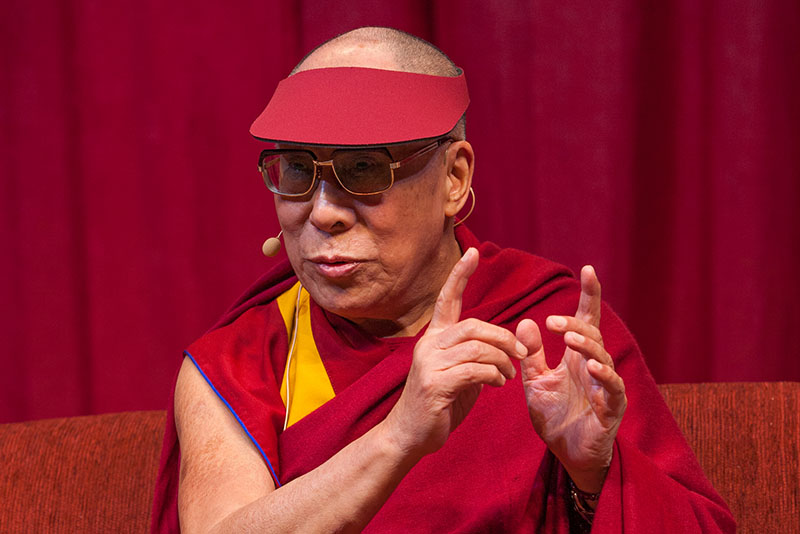
Dalai Lama – His holiness the Dalai Lama of Tibet visited the U of A as a part of the Distinguished Lecture Series in 2011. He was awarded a Nobel Peace Prize in 1989 for consistently advocating policies of non-violence, even in the face of extreme aggression by the Chinese communist government.
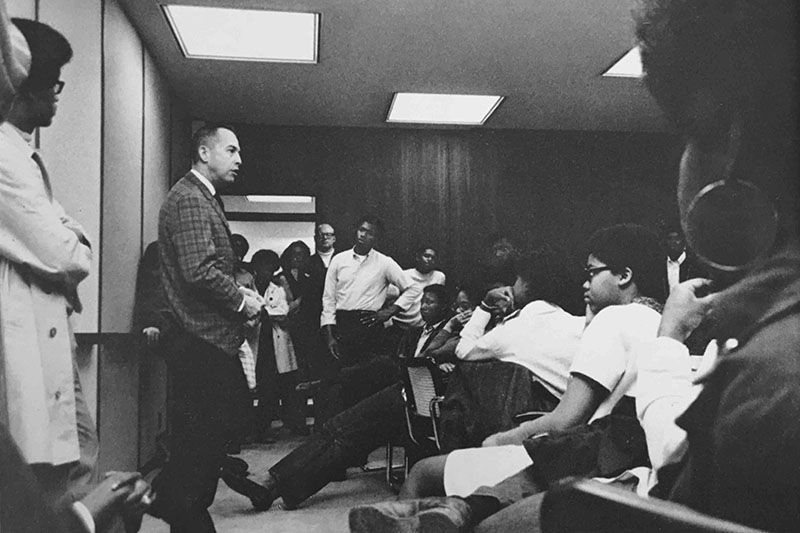
Student Sit In – The Black Americans for Democracy student organization staged a sit-in in the administration building in 1970 to call for more Black administrators, faculty and students. The organization also pushed to end the playing of “Dixie” by the university’s marching band, gaining support from the student senate and eventually winning the battle when a new band director announced the band would cease playing it.